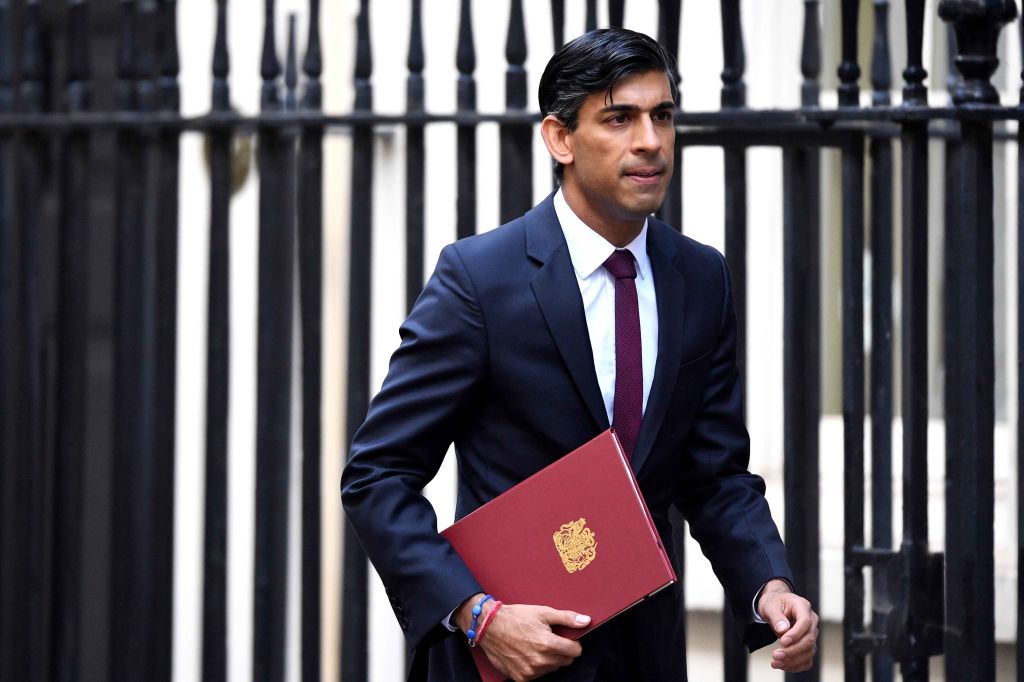When Philip Hammond delivered a notably parsimonious Spring Budget statement in 2017, his predecessor George Osborne put out a congratulatory tweet.
‘Well done Phil. Sound money and fiscal responsibility are the only secure foundations of a fair and strong economy,’ wrote Mr Osborne.
Hammond’s Budget took place on the tenth anniversary of a seminal speech made by Mr Osborne to the CBI. In March 2007, the then 35-year-old Shadow Chancellor told the gathered captains of industry:
‘I do not want any uncertainty over our commitment to Sound Money. We will not seek to spend our way out of Britain’s problems – that would simply make the problems worse in the long term.’
Unveiling three ‘Sound Money Tests’, Osborne made clear that unfunded tax cuts were off the agenda too and the Tories would not commit to spending more than Labour planned to in any Whitehall department.
Across six years as Chancellor, Osborne largely stuck to this approach, steering annual public spending back towards the break-even point by sharply restraining its growth in the aftermath of the financial crash. That the economy did not grow very fast either was judged to be a price worth paying.
Until recently this hair-shirted strategy was deemed in Tory circles to be the only authentically Conservative way to go. In July last year, in the midst of a Tory leadership contest during which Boris Johnson scattered spending pledges around like confetti, the MP Mark Harper fired a warning shot on the Conservative Home website by asking: ‘If the Conservative Party is not the Party of Sound Money then what an earth are we for?’
After Rishi Sunak’s throwing open of the national books this week, that is a particularly pertinent question. Even before coronavirus hit, Johnson had declared that he did not want to hear the word austerity again.
Since Covid struck, massive extra public spending by the Treasury has gone hand in hand with vast levels of money-printing over at the Bank of England, which now ‘owns’ more than a third of a national debt that has topped £2 trillion.
In their response to the pandemic, Johnson and Sunak have adopted an uber-Keynesian approach which accepts that only the State has the firepower to ward off a catastrophic deflationary spiral. While Osborne took the reins at the Treasury well after the emergency phase of the financial crisis was over, his decision to cut and cut hard coincided with the wilting of a fragile flower of growth that Alistair Darling had brought into bloom.
At the time criticism of Osborne for cutting too early and too hard did not gain much traction. After all, everyone knew that Labour always ran out of cash (as confirmed by Liam Byrne’s famous note: ‘Sorry, there is no money’) and that it was the task of Tories to clean up the mess.
With Darling having handed him a deficit of £140bn – around 9 per cent of GDP – informed opinion accepted that the country was in perilous fiscal waters and that Osborne was right to tack hard.
Yet now it transpires that financial markets are hardly jittery about a deficit that will this year under Sunak expect to hit almost £400bn and a whopping 19 per cent of GDP. And the UK can still borrow at rock-bottom interest rates.
So it will not only be left-wingers who now look back and wonder whether Britain had much more financial headroom during the post-crash years than was generally assumed. This poses an awkward question for Osborne: could we have come through the post-crash period with a social fabric that suffered far less damage and an economy that was significantly bigger, while still completing a gentler voyage back to break even?
Looking ahead, the new Boy Wonder at the Treasury must seek to navigate new assumptions about ‘Sound Money’. For all his talk about the need to restore sustainability to the public finances, the uber-Keynesians would seem to have the whip hand. There is an entire political consensus in place now about the prime danger being cutting too early and too far. The printing presses over at Threadneedle Street are likely to be whirring on for a while yet as well.
And when the overall deficit is expected to run at £100bn plus for years ahead, arguing against campaigns for new public spending programmes that are measured in the hundreds of millions will be a mug’s game, especially if they involve helping groups that are the focus of major public sympathy such as impoverished children, the frail elderly or nurses. Attach the name of Marcus Rashford to any such cause and giving in to it becomes a no-brainer.
Who now believes the £20 a week increase in Universal Credit intended to help low-income households through the worst of Covid will actually be rescinded next Spring? Sunak’s task is merely to judge the most politically advantageous moment to surrender.
The new terms of trade also pose challenges for the Left. If they just keep calling for even more spending – and shadow chancellor Anneliese Dodds was in full Nanny McSpree mode this week – it could be they rather than the Tories who suffer the most reputational damage if fiscal fashions change again.
The most worrying thought of all is that financial constraints are bound to become harsher some time soon, with interest rates rising and quantitative easing finally impacting the crazy asset price bubbles that have been feared for so long.
In such circumstances Osborne will look like a wise man indeed. But for now the Tory Party needs to decide what Sound Money even means any more.







Comments